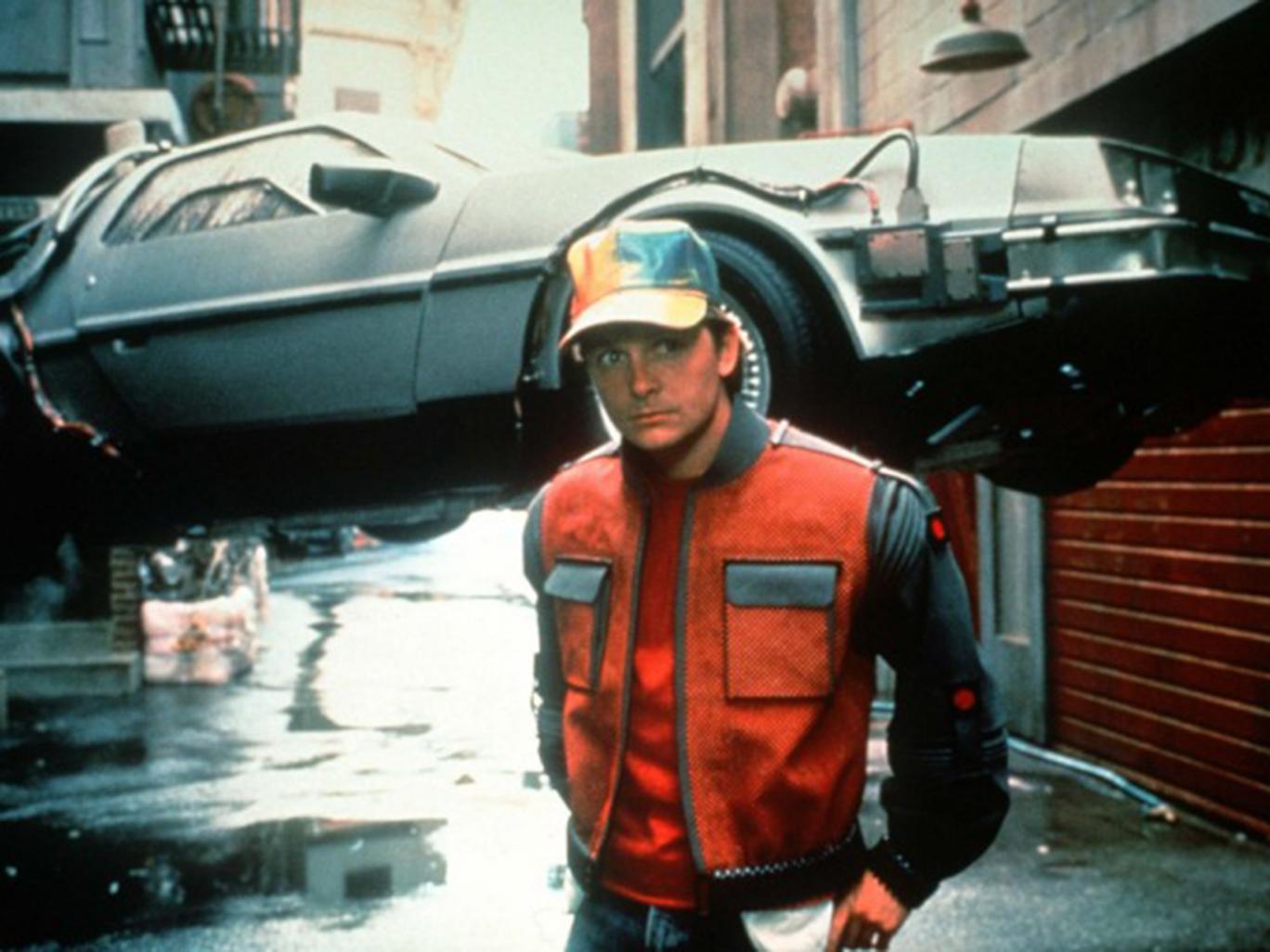Can science take us back to the future?
This Wednesday, 21 October 2015, marks the date in which Marty McFly and Doc Brown arrive in the future in Back to the Future II. So we asked ANU physicist and philosopher Dr Peter Riggs to tell us more about the science of time travel.
“We can definitely say that time travel into the future is possible,” explains Dr Peter Riggs, a Visiting Fellow from the Research School of Physics and Engineering “and in effect it has been done before”.
But before you fire up your replica DeLorean in the hope of fast-forwarding to a time when flying cars are actually on the market, like most sci-fi, the truth is more complex than fiction.
To get the real story, we have to go back almost exactly 100 years to the publication of a series of papers that gave birth to modern physics.
“Einstein’s Theory of General Relativity radically changed our notions about space and time,” says Dr Riggs.
“Previous to that, people held the common sense attitude of Isaac Newton that time flows at the same rate for everyone, everywhere. But Einstein blew that perception apart.”
Because of Einstein, scientists now understand that space and time are linked and that time is measured to be different depending on your position in space and the speed in which you travel.
“Now that we are in the 21st century, we actually have to take this into account with equipment such as used in the global positioning system (GPS),” says Dr Riggs.
If your GPS didn’t take Einstein’s corrections of time into account when triangulating signals from satellites in orbit, it would place you in the wrong position. “And even if they are out by a small amount, your assigned position of Earth moves substantially from what it should be.”
But what does this have to do with time travel?
“If you are travelling at a higher speed than someone else, the time that you measure is less than the person not travelling at high speed,” says Dr Riggs. “You have to travel very fast for this to be noticeable, but with atomic clocks, we can measure this.”
And according to Dr Riggs, this has been done before.
Russian cosmonaut Sergei Krikalev has spent more than 800 days in orbit around the Earth, travelling at a speed “significantly higher than we could do on Earth, but still very much less than the speed of light”, making Krikalev approximately 0.02 seconds younger than if he stayed on Earth.
“Now if we could extend that by having a very fast spaceship that could go close to the speed of light, you could in fact go out into space and come back and you would be some years into your future,” he says. “So for a trip that might last several months, say, a number of years would have elapsed on Earth.”
So if time travel is consistent with Einstein’s Theory of General Relativity, is it possible to travel forward in time with a flux capacitor and DeLorean?
“Well, they don’t really explain how it is done,” says Dr Riggs, explaining that we are shown that the DeLorean is ‘capable of doing it, and it’s powered by plutonium’.”
“The point that they need a high energy source is correct”, as it would take a lot of energy to reach speeds close to the speed of light, “but a lot more than you could get out of a block of plutonium”.
And that is not the only point that Dr Riggs disagrees with.
“They start to have people disappear and that’s just nonsense,” he explains. “Even if you could go back in time, you’re part of the events there. You don’t have a first time before the time travel and a second time when you get there. It is all the same time.”
But perhaps when it comes to sci-fi classics, Dr Riggs would feel more at home in a TARDIS than a DeLorean.
“I was a Doctor Who fan in primary school and I followed that interest into post-graduate study, doing my Masters in the nature of time,” he says.
“It has been a life-long endeavour and I am still thinking of it. It’s not a problem that one person is going to work out in their lifetime – it is going to take us many decades to get a good understanding of what time is because we still don’t know.
“We know bits about the nature of time but we still can’t really say what time is. Yet it’s something that bears down on all of us every day. Because we are stuck in the present, life goes on regardless of what we know.”
Dr Peter Riggs is presenting a public lecture at 6.30pm Tuesday 20 October at the ANU Manning Clark Centre. For details visit:
Media are also invited to attend a separate event at the ANU Sports Hall, Wednesday 21 October at 10am.

